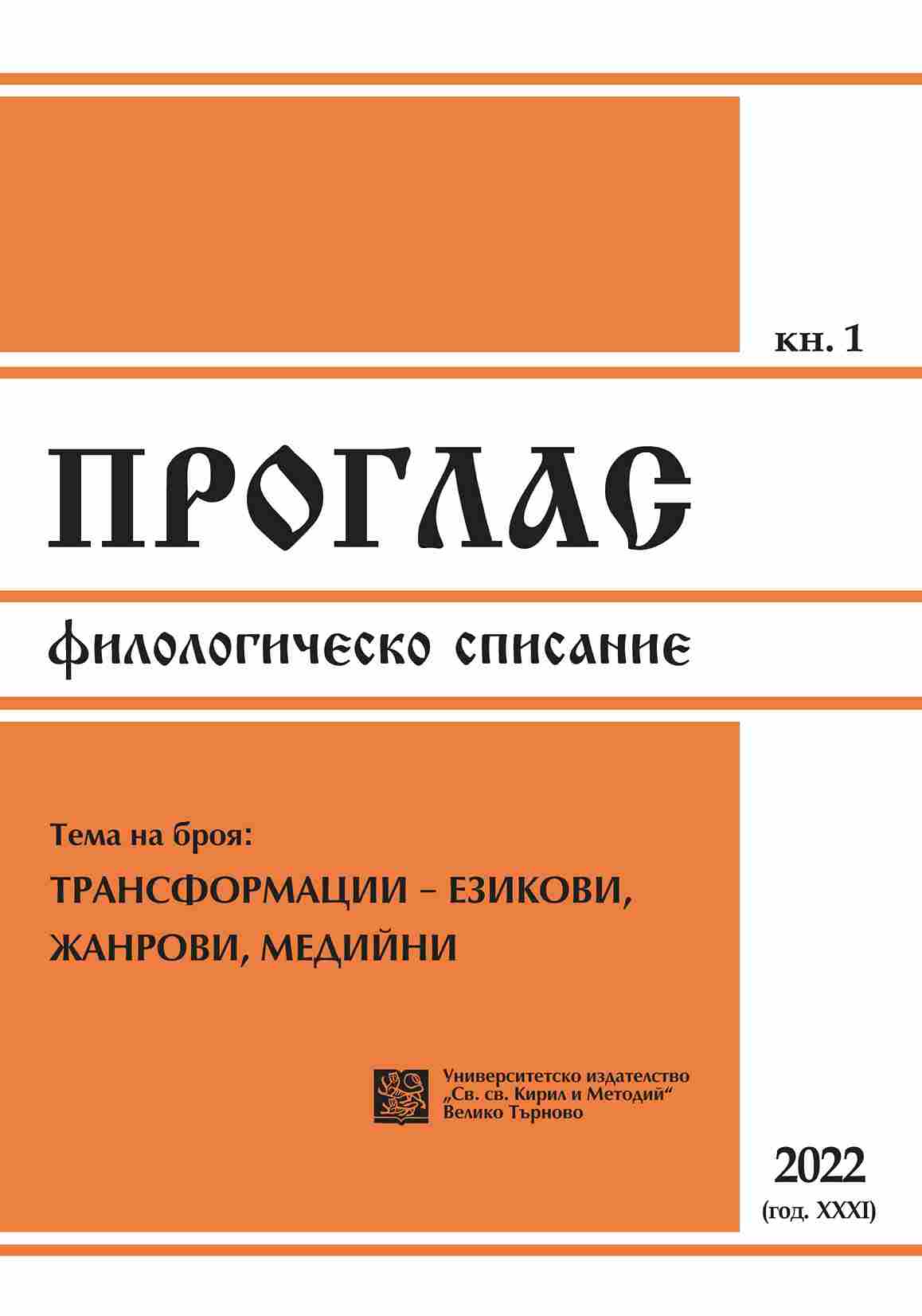Относно имперфектните причастия в образуването на българския сегашен перфект и несвидетелствеността на третоличните му форми
Concerning Imperfect Participles in the Formation of the Bulgarian Present Perfect and the Non-Witnessing of Its Third-Person Forms
Author(s): Krasimir KabakchievSubject(s): Language studies, Language and Literature Studies, Theoretical Linguistics, Morphology, South Slavic Languages
Published by: Великотърновски университет „Св. св. Кирил и Методий”
Keywords: non-witnessing; witnessing; present perfect; aorist participles; imperfect participles
Summary/Abstract: Bulgarian linguistic publications describe (non-)witnessing of the perfect in different and controversial terms. Many do not tackle the issue, some claim that the perfect is neutral as to witnessing. Prevalent is the view that three major separate values, grammaticalized, underlie the sam+-l (i.e., be+past active participle) forms: perfect, inferential, re-narrative. But if these are three homonymous grammemes and the perfect is neutral as to witnessing, it will turn out that perfects counter inferentials and re-narratives with this specific property absent in the latter two – because they are strictly non-witnessed. Such a thesis would be defective, however, because third-person present perfect forms, much more frequent, are non-witnessed, with no exception at all. They are non-witnessed also when formed from imperfect participles. Non-third person perfect forms are subject to further study. But the status of third-person perfect forms as non witnessed must be incorporated into Bulgarian grammars, because the absence of this major characteristic discredits them.
Journal: Проглас
- Issue Year: 31/2022
- Issue No: 1
- Page Range: 32-41
- Page Count: 10
- Language: Bulgarian

